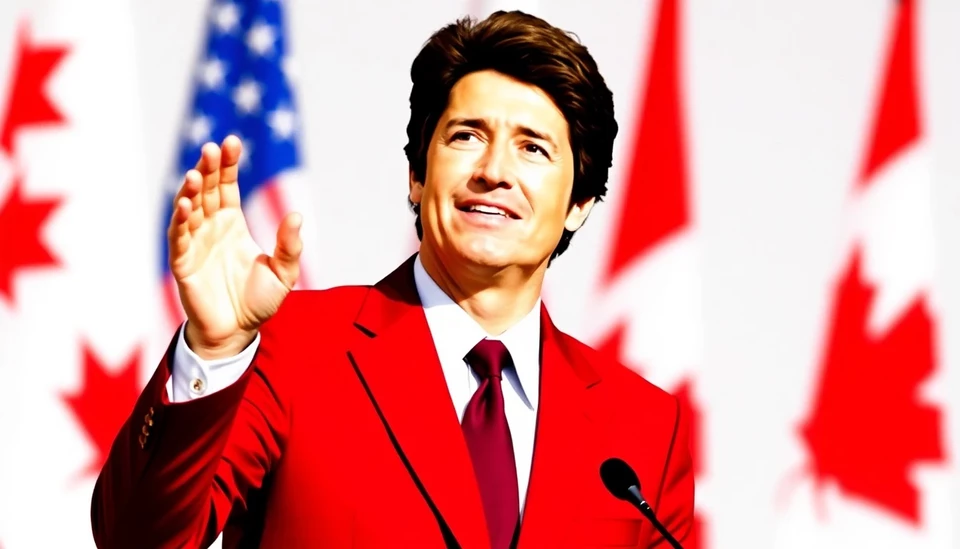
In an unexpected political shift, Canadian Prime Minister Justin Trudeau has announced his resignation, a move that reflects the growing dissatisfaction among voters with the current government. This decision has come amidst rising concerns over inflation and immigration policies that have increasingly influenced the trajectory of Canadian politics.
Trudeau's three terms in office, characterized by progressive agendas and high-profile international appearances, have begun to wear thin on a populace grappling with soaring living costs and a complex immigration landscape. As inflation rates reached new highs, many Canadians have felt the pinch in their daily lives, leading to a demand for a change in leadership that reflects their economic struggles.
The high inflation rates have been a pressing issue for Trudeau's government. Prices for essentials such as food, fuel, and housing have surged, and many citizens are feeling financially squeezed. This shift in economic conditions has played a pivotal role in reshaping voter sentiment across the political spectrum. Many Canadians are now prioritizing economic concerns over the previously dominant social issues that characterized Trudeau's previous elections.
Furthermore, immigration policies have also sparked debate, with a significant portion of the electorate expressing anxiety over the challenges that increased immigration has posed. Critics argue that the government's approach has failed to adequately support the integration of newcomers into the economy and communities, leading to a rise in xenophobic sentiments among the populace. The balancing act of embracing diversity while addressing the growing concerns about resource allocation and job availability has become a significant challenge for the Trudeau administration.
As public sentiments lean towards candidates who promise to tackle these pressing issues, Trudeau's standing has diminished significantly. Various polls have indicated that if elections were held today, the ruling Liberal party would struggle to secure a victory. As a response, Trudeau's resignation may be seen as an acknowledgment of these shifting tides, allowing for a potential new wave of leadership that may better resonate with the Canadian electorate.
The resignation announcement has sparked a wave of speculation regarding who might succeed Trudeau. Several potential candidates within the Liberal party are already being discussed, with some arguing that a fresh face could restore public trust and rejuvenate the party's image. However, others fear that the current political climate could favor the more conservative factions in Canada, urging the Liberal party to realign its strategies to remain competitive in future elections.
As the political landscape of Canada continues to evolve, Trudeau's departure marks a significant turning point. Voters are demanding accountability and effective solutions to not just the economic and immigration challenges, but also the environmental and social policies that dictate their everyday lives. The forthcoming months will be critical as both the Liberal party and potential successors prepare to engage an increasingly discerning electorate.
Given the current state of affairs, it remains to be seen how this political change will shape Canada's future and whether voters will rally behind a new direction that promises tangible improvements in their lives.
In essence, Trudeau's resignation signifies more than just a change in leadership; it represents a collective call for a reevaluation of the policies and approaches that have been in place and a plea for more responsive governance that prioritizes the needs of its citizens amidst ongoing economic and social challenges.
#TrudeauResignation #CanadaPolitics #Inflation #Immigration #LiberalParty #PoliticalChange #CanadiansDemandChange #LeadershipTransition
Author: Daniel Foster




